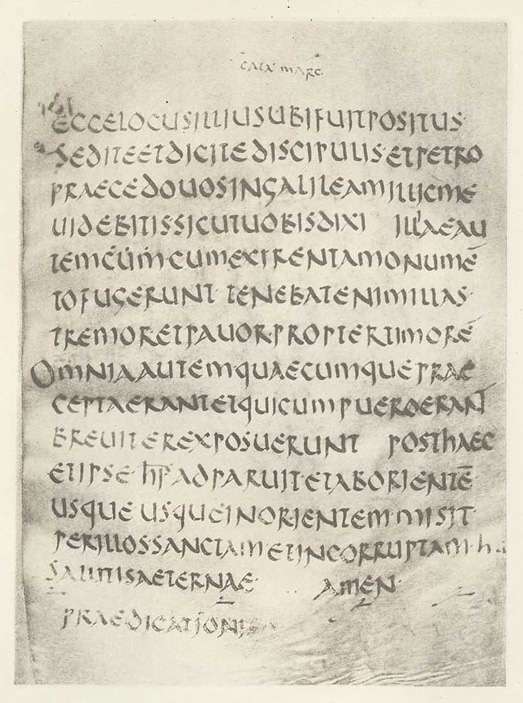I certainly don't want to deny that the decision of how (or when) to end one's reading of Mark matters. I think the earliest recoverable ending of Mark is 16.8, and it matters for how we read 1.1–16.8 that the final words of the gospel—ἐφοβοῦντο γάρ ["for they were afraid"]—leave the account of Jesus' life after the crucifixion unnarrated (but not unstated!).
Nevertheless, I think Parker over-reaches in his discussion of the endings' importances. Parker writes,
Both the Intermediate and the Long Ending, with their emphasis on proclamation, provide the Gospel with its own validation. By writing, Mark is obedient to this command, for he enshrines the command within his book. The Short Ending provides no such security for the book. Indeed, quite the reverse, for the women's silence means that, within the story, we have no means of knowing that any of it happened. (146; original emphasis)
Ending with the women's silence and fear is certainly strange. But isn't Parker's limitation—"within the story"—rather artificial? Doesn't the very fact of Mark's gospel (by which I mean Mark 1.1–16.8) indicate that the silence is broken, that the women have found their voice despite their fear, and that their testimony has been taken over and become Mark's? If, "within the story," the women never pass on the angelic announcement, then there is no "within the story" to speak of.
But instead, by ending the story at 16.8, with the women fearful and silent, the Markan narrator leaves open a space for the audience to consider their response to the narrative. Will they speak through their fear, as the women surely must have, or will the gospel's proclamation come to an end after its reading? Mark 16.8 encourages—even requires!—not only the women but also us to begin to tell Jesus' story anew. This, in fact, is the transgression of the so-called Longer Endings: Mark 16.8 doesn't call for 16.9 but rather for a return to 1.1, ἀρχὴ τοῦ εὐαγγελίου Ἰησοῦ Χριστοῦ ["The beginning of the gospel of Jesus Christ"]. After 16.8 the audience becomes the narrator, the silence is overcome by the beginning of the gospel, and we the audience-become-narrator become the messenger of God who prepares the way for Jesus (1.2–3).


No comments:
Post a Comment